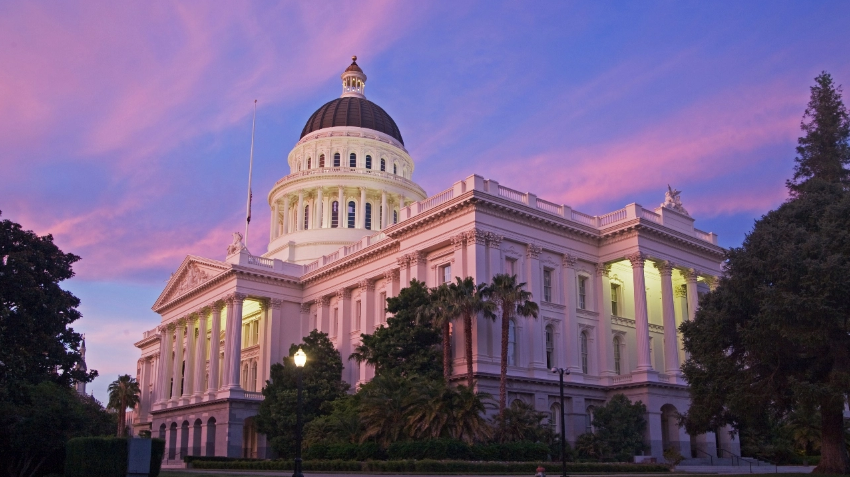Business
Key marijuana tax reforms absent in California budget blueprint

California lawmakers approved a preliminary $300 billion state budget this month, but they left several marijuana business issues unresolved – the latest sign of the industry’s lack of influence at the state Capitol in Sacramento.
The record spending plan, which Gov. Gavin Newsom must sign before the new fiscal year begins July 1, failed to address the marijuana industry’s top concern: high taxes, which make it harder for legal businesses to compete with the underground market.
Taxes – along with several other issues – will likely be addressed in so-called “trailer bills” in coming weeks, cannabis industry sources said, as lawmakers and Newsom negotiate the particulars of a historic $98 billion surplus.
Cannabis industry advocates hope the cultivation tax will be eliminated, a proposal backed by the governor and state lawmakers.
But the marijuana excise tax on retail purchases could be a sticking point.
Newsom has proposed eliminating the cultivation tax while shifting the collection of excise taxes from distributors to marijuana retailers starting in January.
The excise tax rate would likely stay at 15% and could potentially increase over time if cannabis tax revenues fall below certain thresholds.
Some lawmakers – including Sen. Steven Bradford, a prominent Los Angeles Democrat – have pressed for more substantive tax reform, including eliminating the cultivation tax and lowering the excise tax to 5%.
Tax-reform outlook dim
Hirsh Jain, founder of L.A.-based cannabis consultancy Ananda Strategy, cautioned that sweeping marijuana tax overhauls are unlikely in the expected trailer bills.
“There does not seem the political will to support this kind of far-reaching tax reform, despite how badly needed it is,” he said.
“It will still remain very difficult for legal operators to compete with the illicit market.”
Lobbyist Nara Dahlbacka, who represents the California Cannabis Coalition, said the limited industry relief approved in the budget reflects the marijuana sector’s weakened position among policymakers.
“The last few years have had meager, if any, legislative gains,” said Dahlbacka, partner at Oakland-based Milo Group.
“We were out-lobbied by the very groups whose budgets our taxes fund.”
One trailer bill proposes maintaining the 15% cannabis excise tax for three years while eliminating the cultivation tax.
After that, the excise tax could be raised – a major concern for cannabis businesses that have struggled amid last year’s collapse in wholesale marijuana prices.
Over the past few years, California’s marijuana economy has sunk, taking hundreds of failed operators and ventures along the way.
The 15% excise tax on retail sales of recreational and medical cannabis is projected to generate $711 million this fiscal year and $787 million in the next fiscal year.
Other cannabis issues that could be addressed in trailer bills include:
- Relief for social equity operators.
- Adding enforcement tools to combat the illicit market.
- Boosting worker protections.
- Improving electronic licensing systems and data.
What’s in the budget
While several key industry concerns remain unresolved in the preliminary budget, lawmakers did approve a few cannabis-related initiatives related to research and business expansion.
They include:
- $2 million for the Center for Medicinal Cannabis Research at the University of California San Diego to study driving impairment effects of commercial cannabis.
- $20 million for a Cannabis Local Jurisdiction Retail Access Grant Program, which depends on a separate, yet-to-pass bill. The program will help cities and counties without retail cannabis programs establish marijuana stores.
“The retail access grants will help local jurisdictions provide access to safe, legal and tested cannabis products to consumers throughout the state,” said Nicole Elliott, director of the state Department of Cannabis Control.
“It will also assist us in combating the illegal cannabis markets that exist in and around jurisdictions with cannabis prohibitions.”
Industry reaction
Michael Steinmetz, founder of Northern California-based distributor Flow Cannabis Co., said the preliminary state budget doesn’t go far enough to address the high costs of compliance. and anything less will only increase the price of regulated marijuana.
“It is not the lifeline we so desperately need,” he told MJBizDaily via email.
Steinmetz is an organizer of the newly created Save California Cannabis Coalition, which sent a letter to Newsom last month detailing industry woes – particularly the crippling effects of high taxation and regulation – while providing several recommendations.
The letter was signed by nearly 200 state operators and brands.
Amber Senter, the CEO of Oakland-based infused cannabis processor and distributor Makr House, blasted the budget’s lack of relief for minority operators.
“Not only has the state fallen short on its promise to right the wrongs inflicted upon Black and brown communities by the war on drugs, but five years of oppressive taxation has nearly pushed California’s Black and brown operators out of the industry entirely,” said Senter, who helped craft the California Cannabis Social Equity Act of 2018.
That measure helped create more equitable ownership and employment opportunities for those adversely affected by the war on drugs.
Senter said a lot of minority communities still “can’t access affordable, safe and regulated cannabis” and that the Legislature’s failure to act is part of the problem.
Source: https://mjbizdaily.com/key-cannabis-tax-reforms-absent-in-california-budget-blueprint/